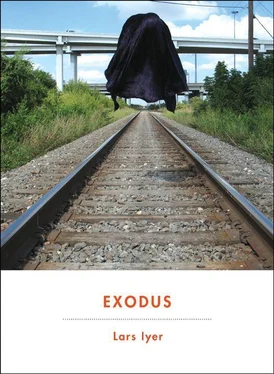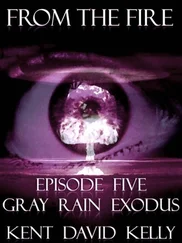W. carried Deleuze’s Logic of Sense around in his man bag for a month, he says. He never understood a word of it. The criterion for a book of worth is: does it make you think more, W. says. Did the Logic of Sense make him think more? I ask him. It made him experience his idiocy in a new way, which is a very valuable thing, W. says.
Idiocy isn’t one thing, W. says. There are kinds of idiocy. Tones of idiocy. His Deleuzian idiocy is very different from his Rosenzweigian idiocy, W. says. From his Kierkegaardian idiocy! He experiences the limits of thought differently with every philosopher he reads! And isn’t that the only reason to read, W. says: to experience your limits anew? To experience your idiocy ?
W. reads me a passage from an encyclopaedia entry on Hermann Cohen:
In Cohen’s hands, this historical orientation contributes in no small part to other aspects of his writing that none of his readers can fail to notice: its obscurity, repetition, and sometimes unnecessary length .
Don’t they understand that Cohen should be praised for his style? W. says. That the philosopher, least of all , is obliged to be clear? The philosopher shouldn’t understand what he’s doing, W. says. He shouldn’t know where his thought is going; and nor should his readers.
W. finds the book for which I wrote a blurb: Jean-Luc Nancy’s Listening . — ‘Ah, the high point of your worldly renown’, W. says. ‘Did Jean-Luc Nancy ask for you personally?’, W. asks. ‘Did he esteem your amazing Blanchot scholarship?’
W. reads the blurb: ‘ sense resounds beyond significance in the experience of listening ’. I’m aping Nancy, W. says. Aping his style. There’s nothing more grotesque than a British person aping the style of a French thinker, W. says.
W. remembers my attempt to become Blanchot . It was hilarious. I was the least likely Blanchotian. The Blanchotian with the least French. With the least idea of France. The only Blanchotian who’d never been to France. Who had never ridden the Paris Métro. Who had never eaten a Parisian crêpe.
Blanchotian scholars should at least be thin, as Blanchot was thin, W. says. They should at least be unwell — as Blanchot was unwell. And they should wear black, W. says. Not some blousy shirt with great flowers. Not grimy pantaloons, billowing like great sails.
Westminster Abbey. The Houses of Parliament. Whitehall, and then Downing Street, seen through the iron grille of the gate.
W. thinks he has London sickness , he says, remembering the title of one of Blanchot’s essays. At first, he’s awed at the sights, then bored, then depressed. There are too many spectacles! And spectacles make us into spectators, nothing more! I am to lead him somewhere calm, W. says, as Antigone led the blinded Oedipus.
London Aquarium embraces us with its darkness. Tell him all I know, W. says. It’s one of my odd corners of knowledge: aquatic life, he says. And sometimes, he finds it soothing to be told things. He likes facts to wash over him. Facts about fish, for example. Facts about ocean currents and migratory patterns.
W. remembers my great fish lectures at the aquarium in Plymouth. He remembers my telling him about the shoaling behaviour of turbot and Dover sole, and about their favoured habitats and mating habits.
Plymouth’s is a local aquarium, I told W. I appreciated that, and made W. appreciate it, too. It wasn’t about the colourful marine fish that you can see anywhere. It wasn’t all clown fish and anemones. It was about Plymouth — the aquatic life of Plymouth and its environs, I said, over our plates of freshly caught turbot and Dover sole in Platters .
London Aquarium isn’t a local aquarium, I tell W. It isn’t content to display dogfish and eels. It’s a prestige aquarium, I say, which makes things entirely different. It’s a capital city aquarium …
I soothe him with my chatter, W. says. And the darkness of the aquarium makes him think he’s sinking underground. That he’s lying down and giving up, and rotting in the humus with all the dead of London.
W. has no understanding of Danish pathos , he says. He doesn’t understand the mood of Denmark.
Tungsind : that’s the one Danish word he has to understand, haven’t I told him that? Tungsind : Danish melancholy. Nineteenth century Danish melancholy. Isn’t that what Kierkegaard said he suffered from? Isn’t that what had been passed down to him from his father? And hasn’t it been passed down to all Danes, even though Denmark is supposed to be the happiest country in Europe?
It’s why the Danes are such bad drunks, W. says. Danes show themselves at their worst when they drink. Tolerance, openness and liberal-mindedness go out of the window. Danish happiness is thrown out of the window. Danes become Vikings again, when they drink, W. says. But defeated Vikings, brooding Vikings who have lost all their fire, if not all their anger. The drunk Dane is full of a weary rage, a resentful ire. He knows, W. says: he sees it in me. — ‘You can be so cruel . So vicious ’.
Has my stalker followed us to London? — ‘You do still have a stalker, don’t you?’ I do. — ‘He’s still following you about?’ He is. He’s always in the shadows, I tell W. He’ll appear somewhere, when we least expect him. — ‘It’s going to end in a stabbing’, W. says. He’s sure of it. ‘Someone’s going to stab you’.
I bring them on myself, W. says, the nutters and the weirdoes. What draws them to me, my mad men and women? Why am I the one they pick out from the crowd? Because they do pick me out. They follow me, buttonhole me, write incessant emails to me; he knows that. He’s met them; they’re terrifying.
More terrifying still is his role in all this, W. says. Is he a nutter? A weirdo? The worst of nutters, the worst of weirdoes, I tell him, which terrifies him all the more.
The Isle of Dogs. This is where suicides used to wash up, W. says. And this is where they’ll wash up again, at the feet of the steel and glass buildings of Canary Wharf and its neighbours, where the financial services industry has its hub. This is it, the capital of the capital, W. says. We’ve found it: the real centre of London, with its great towers. We’ve found the centre, unashamed of its symbols of power and wealth …
There is a sublimity to Capital, a deathly beauty, we agree. It commands awe, like a starry sky. We could be in Shanghai, we agree. In Dubai …
Capitalism, unashamed of itself. Money, unashamed, coming into the open. A new day has begun. Capitalism is natural and eternal and unabashed …
We’re at the beginning of a new age, W. says. A gleaming age. A steel-and-windows age. And there will come the men and women of the new age, taller than us, with bright eyes and white teeth. Taller, sleeker, with broader skill-sets.
And what will our role be, in the new age? What will happen to us, in the new university ? Will we become learning facilitators , taking our students through the Microsoft philosophy package? Will we become virtual guides in the Philosophy-World ™ learning environment?
Will we become puppets of Capital , teaching that our Britain is the best possible Britain, that history could only have led to our neoliberal present? Will we teach that all philosophers — even those most opposed to capitalism — are really capitalist philosophers , and that capitalism really is the truth of all things, that it was waiting there all along for us to catch up? Will we teach that all thoughts — even anti-capitalist thoughts — are ultimately thoughts of capitalism , that every idea, in essence, is a capitalist idea ?
Читать дальше












